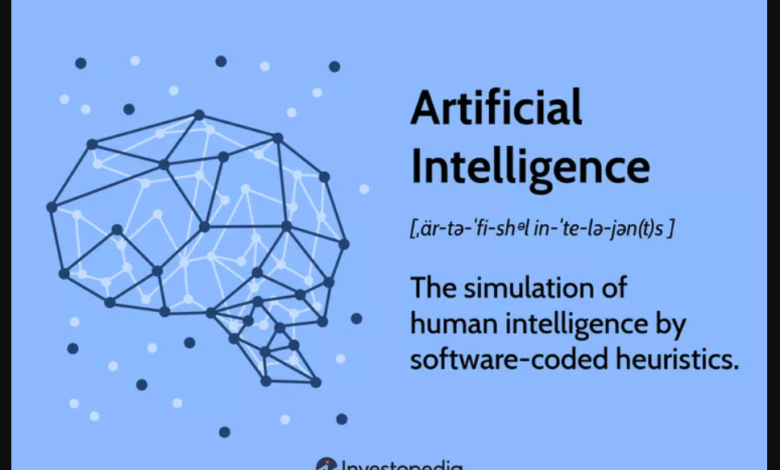The Usage of Artificial Intelligence in Modern Biotechnological Enhancements
W.M.C.J.T. Kithulwatta - Lecturer and Head of the Department (Acting),Faculty of Technological Studies, Uva Wellassa University of Sri Lanka

Summary
Artificial Intelligence (AI) is becoming an essential component of contemporary research, revolutionizing a wide range of fields, including biotechnology. Biotechnology has advanced significantly in genetic engineering, personalized medicine, and drug discovery by utilizing AI’s powers in data processing, pattern recognition, and predictive modeling. This article demonstrates how AI is incorporated into contemporary biotechnology advancements, emphasizing its effects, uses, and prospects. The meeting of biotechnology and AI marks a turning point in scientific progress. Biotechnology research applies biological processes to technology and often deals with large, complex data sets that are difficult to evaluate using traditional techniques. AI is well suited to address these challenges because of its ability to process large amounts of data quickly and accurately. AI technologies such as deep learning, neural networks, and machine learning have revolutionized data analysis in biotechnology. New ideas and discoveries can come from the ability of these technologies to identify patterns and relationships that are difficult for human analysts to detect. For example, AI systems can examine genomic data to discover genetic abnormalities associated with specific diseases, allowing for more accurate treatment and diagnostic plans.
Keywords: Artificial Intelligence (AI), Machine Learning, Biotechnology, Discoveries
Artificial Intelligence
The simulation of human intelligence (illustrated in Figure 1) in computers designed to think, learn, and perform tasks that typically require human cognitive functions is called artificial intelligence (AI). Reasoning skills, problem-solving, understanding natural language, and environmental awareness are some of these tasks. There are different types of artificial intelligence systems, including narrow AI, which focuses on specific tasks such as facial recognition or language translation, and general AI, which aims to mimic human cognitive abilities more generally. Artificial intelligence uses algorithms, machine learning, and deep learning models to create breakthrough changes in fields such as technology, healthcare, and finance. It is also continuously improved through data learning.
Figure 1: The definition of AI
Source: https://www.investopedia.com/terms/a/artificial-intelligence-ai.asp
Applications of AI in Biotechnology
Drug Development and Discovery
The area of drug research and discovery is where AI has made the biggest contribution to biotechnology. Bringing new drugs to market typically takes years and billions of dollars through the laborious and expensive traditional drug discovery process. AI accelerates this process by predicting interactions between various chemicals and physical targets and identifying potential candidates for further testing.
AI models can analyze large libraries of compounds to predict biological activity and possible side effects. For example, deep learning systems can simulate chemical interactions, making it easier for researchers to discover possible drug options. AI can also help optimize drug design by predicting the most effective molecular structures to fight specific diseases. Figure 2 is an AI-enabled robot in China for drug development.
Figure 2: Usage of AI-controlled robots in Drug development laboratories in China.
Source: https://www.bloomberg.com/news/articles/2023-11-13/race-for-first-drug-discovered-by-ai-nears-key-milestone
Following is the list of state-of-the-art systems, tools, and achievements in the field of Drug Development and Discovery with AI.
- AlphaFold: Web link – https://deepmind.google/technologies/alphafold/
- AtomNet
- BenevolentAI: Web link – https://www.benevolent.com/
- Insilico Medicine: Web Link – https://insilico.com/
Genomic Analysis
AI has completely changed genomic analysis, especially in the fields of gene sequencing and interpretation. Large genomic databases may be processed by AI systems, which can then find genetic variants linked to specific diseases. The ability to customize therapies based on a patient’s genetic profile is essential for personalized medicine.
In order to better understand how genetic mutations affect function and how diseases progress, machine learning techniques are employed to anticipate the functional impact of these changes. AI also makes it easier to find targets for gene editing, making it possible to make precise changes with tools like CRISPR-Cas9. AI advances our knowledge of the human genome, which aids in the creation of focused treatments and prophylactic measures.
Following is the list of state-of-the-art systems, tools, and achievements in the field of Genomic Analysis with AI.
- DeepVariant: Web link – https://github.com/google/deepvariant
- VariantSpark: Web link – https://bioinformatics.csiro.au/variantspark/
- ai: Web link – https://crispr.ai/
- Genoox: Web link – https://www.genoox.com/
Personalized Medicine
The goal of personalized medicine is to tailor medical care to each patient’s individual needs. To develop a personalized treatment plan, AI analyzes a variety of data sources, including clinical, proteomic, and genetic data. Machine learning algorithms can use information about a patient’s genetic makeup and medical background to predict how he or she will respond to certain treatments.
AI-based personalized medicine shows promise in oncology, tailoring treatments to the genetic changes present in a patient’s tumor. AI can help improve patient outcomes and reduce the incidence of side effects by predicting which treatments will be most effective. AI can also track patient responses in real time and adjust treatments dynamically.
Following is the list of state-of-the-art systems, tools, and achievements in the field of Personalized Medicine with AI.
Following is the list of state-of-the-art systems, tools, and achievements in the field of Personalized Medicine with AI.
- IBM Watson for Genomics: Web link – https://www.ibm.com/mysupport/s/topic/0TO500000002ParGAE/watson-for-genomics?language=th
- Tempus: Web link – https://www.tempus.com/
- NantHealth: Web link – https://nanthealth.com/
- AI: Web link – https://paige.ai/
Synthetic Biology
The field of synthetic biology focuses on the development and construction of new biological components, tools, and systems. AI improves synthetic biology by providing tools to model and simulate biological systems and predict the behavior of artificial structures. Genetic circuits can use machine learning techniques to optimize their design for improved stability and functionality.
AI can also help create artificial organisms with desirable properties, including improved disease resistance or increased chemical production. By combining AI and synthetic biology, researchers can accelerate the development of bio-based solutions to medical, agricultural, and environmental sustainability challenges.
Following is the list of state-of-the-art systems, tools, and achievements in the field of Synthetic Biology with AI.
- Bayesian Optimization for Synthetic Biology: Web link – https://pubs.acs.org/doi/10.1021/acssynbio.3c00120
- SynBio AI
- LabGenius: Web link – https://labgeni.us/
- Ginkgo Bioworks: Web link – https://www.ginkgobioworks.com/
Agricultural Biotechnology
AI is revolutionizing agricultural biotechnology by improving disease detection, resource management, and plant breeding. Phenotypic and genotypic data can be analyzed using machine learning algorithms to find traits associated with high yields and disease resistance. The development of improved plant varieties is guided by this information.
AI-based systems can evaluate data from sensors and drones to optimize pest control, fertilization, and irrigation, making precision agriculture possible. AI improves the sustainability and efficiency of agricultural processes, ensuring food security and environmental protection. Figure 3 is an example of an AI-enabled drone in the real field of agriculture.

Figure 3: Usage of AI-controlled drones in agriculture
Source: https://www.niti.gov.in/artificial-intelligence-revolutionising-agriculture
Following is the list of state-of-the-art systems, tools, and achievements in the field of Agricultural Biotechnology with AI.
- Plantix: Web link – https://plantix.net/en/
- Ceres Imaging: Web link – https://ceres.ai/
- Taranis: Web link – https://www.taranis.com/
- Benson Hill: Web link – https://bensonhill.com/
Challenges and Ethical Considerations
The potential for AI applications in biotechnology is huge, but there are still many barriers and ethical dilemmas to be addressed. Data availability and quality are important barriers. AI algorithms require large, high-quality datasets to function properly. It is important to ensure the accuracy, representativeness, and ethical origin of these databases.
Data security and privacy issues are also very important, especially when dealing with personal genetic and medical data. Strict security measures must be taken to protect patient privacy and prevent unauthorized access to personal information. We also need transparent and explainable AI models to promote trust and ensure that the decisions made by AI are understandable and reasonable.
Ethical issues also surround the potential societal impact of AI in biotechnology. The ability to modify genes raises concerns about the long-term consequences and potential abuse of genetic engineering. In order to properly utilize biotechnology and AI, legal frameworks and ethical standards must be established.
Future Prospects
AI in biotechnology holds a bright future as further developments are expected to revolutionize the field further. As AI technologies advance, they will become more important in biotechnology research and applications. One of the emerging themes is the creation of increasingly sophisticated AI models that can integrate multi-omics data and present a comprehensive picture of biological systems.
Another emerging area is AI-based automation, with potential applications in data processing, laboratory operations, and high-throughput screening. Through automation, biotechnology research will become more efficient and reproducible, which will accelerate the pace of innovation and discovery. To realize the full potential of AI, researchers in the fields of biotechnology and AI need to adopt an interdisciplinary approach and collaborate. By promoting collaboration and multidisciplinary involvement, the biotechnology sector can solve complex biological problems and develop new treatments.
The use of AI to revolutionize modern biotechnology is a game changer, leading to important advances in personalized medicine, synthetic biology, drug discovery, genomic analysis, and agricultural biotechnology. By using AI for data analysis and predictive modeling, biotechnology can achieve unprecedented accuracy and efficiency. However, the integration of AI also brings several challenges and issues that need to be addressed to ensure ethical and responsible use. AI technology has the potential to revolutionize the development of biotechnology and open up new avenues to improve the environment, agriculture, and public health.
References:
THE INVESTOPEDIA TEAM, 2024, What Is Artificial Intelligence (AI)?, Investopedia, viewed 01st July 2024, <https://www.investopedia.com/terms/a/artificial-intelligence-ai.asp>
Naman Agrawal and Himanshu Agrawal, 2021, Artificial Intelligence revolutionizing Agriculture, National Portal Of India, viewed 01st July 2024, <https://www.niti.gov.in/artificial-intelligence-revolutionising-agriculture>
Kanoko Matsuyama, 2023, Race for First Drug Discovered by AI Nears Key Milestone, Bloomberg, viewed 01st July 2024 <https://www.bloomberg.com/news/articles/2023-11-13/race-for-first-drug-discovered-by-ai-nears-key-milestone>
Author


